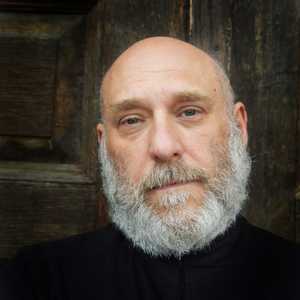Today, we are happy to bring you our conversation with Philip Levy, author of Yard Birds: The Lives and Times of America’s Urban Chickens.
What inspired you to write this book?
I had been part of small effort in my city to change the laws to allow for backyard chickens. We have not been successful. But that experience got me interested in the laws around chickens, what they were, how they came into being, and what were the forces that were changing them. I had written some blog posts about this, and mentioned it in my various web spaces. Then, I served as a reviewer for a UVa Press book and the editor at the time—Boyd Zenner—read of my chicken interest and asked me if I wanted to write a book about all of that. Of course I did, and so I set off to create this book.
What did you learn and what are you hoping readers will learn from your book?
The main point I hope the book conveys is that chickens have a long history in American cities, and their banishment is actually something fairly recent. I came to see that all the fights over chickens were really fights about exactly what a city is and what it should be. Chickens—quite unbeknownst to them—are players in a very human debate about what our civilization should be and how to confront problems like economic inequality and climate change. I know there is a tendency to laugh even at the mention of chickens, and there is an endless parade of publications with cutsie titles that praise birds’ engaging personalities. All of this is fine, but what I want readers to see is that chickens are far more important—and fascinating—a part of city life than any number of crossing-the-road jokes can reveal.
What surprised you the most in the process of writing your book?
One of the first cities I visited in my research was Portland, Oregon. That city is famous for its friendly chicken laws and active backyard farming culture. I had thought that that would be an ideal place to really dig into the issues that surrounded the birds. Instead, what I found (apart from one of the best roller skating rinks in the nation) was that the birds had become so thoroughly normal that there was not that much to say. They were just part of life, and while people were happy to share care information, no one really gave a thought to a time when the birds were less present. The main lesson I learned there was that the panicked worries of chicken opponents really are unfounded. Once the birds are allowed, they just become a normal and unproblematic part of life—for keeper and non-keeper alike.
What’s your favorite anecdote from your book?
I am understandably intrigued by George P. Burham and his fellow Boston chicken fanciers: I would love to settle in and write a whole book on the late 1840s—a pivotal moment in chicken history. I am also really pleased with the story of Albany, New York’s chicken law, largely because it was so rewarding to talk with the people who made it all happen. Dissecting the relationship between chickens and urban hipsters was great fun as well.
What’s next?
I can come up with a good book idea once a week. Sadly, there is not time to write them all! My writing has been a bit of wild pendulum of late. I am in the middle of writing another George Washington related book which I hope to have finished next year. I also just co-edited with Leah Glaser a book about trees and public history sites. But I am not done writing about animals though. I am doing the research for a book on how animals function at historical sites—heritage breeds, carriage horses, and a menagerie of nuisance animals for example. I am also looking at museum taxidermy, monuments, and so on. There is just so much to say and that project lets me build on the approached I used in Yard Birds. Lots of places to visit and lots of people to learn from.





